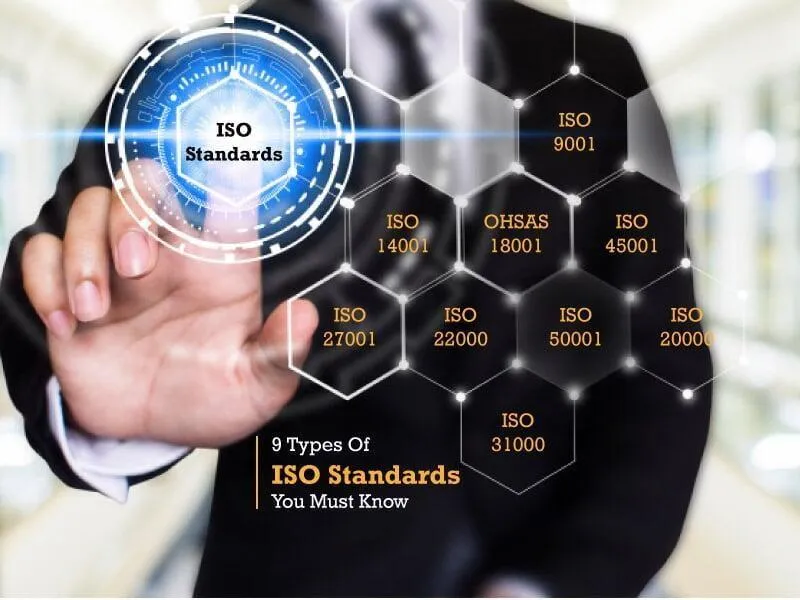
The Future of ISO Standards: Trends to Watch in 2024
The Future of ISO Standards: Trends to Watch in 2024
As we step into 2024, the landscape of ISO standards is poised for significant transformation. At Gitchia Institute of Global Certification Private Limited, we recognize the critical role that staying abreast of these changes plays in maintaining a competitive edge and achieving operational excellence. Our commitment is to provide businesses with the insights and guidance they need to navigate the evolving standards effectively. Here’s a comprehensive look at the key trends shaping the future of ISO standards.
1. Embracing Sustainability with Rigorous Standards
The drive for sustainability is no longer a mere trend but a core business imperative. ISO standards are evolving to reflect this shift with greater rigor. ISO 14001, the standard for environmental management, is expected to integrate more stringent requirements around sustainability practices. This evolution will include enhanced criteria for resource management, waste reduction, and environmental impact. Companies will need to adopt comprehensive environmental strategies that not only comply with these updated standards but also drive meaningful change in their operations.
2. Digital Transformation and ISO Standards
The digital revolution continues to accelerate, influencing every facet of business operations. ISO standards are increasingly incorporating digital technologies such as AI, blockchain, and IoT to address the complexities of modern business environments. For example, ISO 9001 is beginning to address the integration of digital tools and data analytics in quality management processes. Businesses will benefit from aligning their practices with these updated standards, leveraging digital innovations to enhance efficiency, accuracy, and customer satisfaction.
3. Advanced Risk Management Frameworks
In an era of heightened uncertainty—from cybersecurity threats to global supply chain disruptions—risk management is becoming more sophisticated. ISO standards like ISO 31000 are being updated to provide more comprehensive frameworks for identifying, assessing, and mitigating risks. Organizations will need to implement advanced risk management strategies that not only address traditional risks but also emerging threats. This proactive approach will be crucial for maintaining resilience and safeguarding business continuity.
4. Customization and Flexibility in Standards
The traditional, rigid approach to ISO standards is giving way to a more flexible and customizable framework. Recognizing that businesses have unique operational contexts, ISO is emphasizing the need for adaptable standards. This trend is evident in standards such as ISO 45001 for occupational health and safety and ISO 50001 for energy management. Businesses will be able to tailor these standards to fit their specific needs, allowing for more effective implementation and compliance.
5. Stakeholder Engagement and Transparency
ISO standards are increasingly focused on stakeholder engagement, reflecting a broader shift towards transparency and accountability. ISO 26000, which offers guidance on social responsibility, is highlighting the importance of addressing stakeholder concerns and fostering open communication. Companies will need to develop robust strategies for engaging with customers, employees, suppliers, and other stakeholders, ensuring that their practices align with the expectations and values of their broader community.
6. Industry-Specific Standards and Specialization
As industries evolve, so too do the standards that govern them. ISO is expanding its range of industry-specific standards to address sector-specific challenges and innovations. For example, ISO 22000 for food safety management and ISO 13485 for medical devices are tailored to meet the unique requirements of these sectors. In 2024, we can expect further development of specialized standards that cater to emerging industries and technologies, offering businesses more targeted guidance and support.
7. Continuous Improvement as a Core Principle
Continuous improvement remains a fundamental aspect of ISO standards, and this focus is becoming more pronounced. Organizations are expected not only to meet the baseline requirements of ISO standards but also to demonstrate ongoing enhancements in their processes and systems. This emphasis on continuous improvement aligns with the broader business goal of achieving excellence and driving sustainable growth.
Conclusion
As ISO standards evolve in 2024, staying informed and adaptable is key to leveraging their benefits effectively. At Gitchia Institute of Global Certification Private Limited, we are dedicated to helping businesses navigate these changes and achieve their certification goals with confidence. By embracing these trends—whether it's adopting sustainable practices, integrating digital technologies, or enhancing risk management frameworks—organizations can position themselves for success in a rapidly changing world.
For more insights and personalized guidance on how to align with the latest ISO standards, contact us at Gitchia Institute of Global Certification Private Limited. Our team of experts is here to support you in achieving certification and navigating the future of ISO standards with ease.
